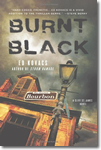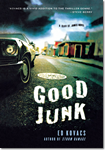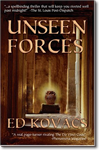I once attended a luncheon in downtown Los Angeles sponsored by the Japan- America Society. Approximately forty World War II Japanese fighter pilots – men who had flown the feared “Zero” – had come to California to participate in a series of friendship events. Old adversaries practicing the art of forgiveness and making new friendships with former enemies is a good thing.
At one point during the luncheon, participants were urged to mingle, take photos, and garner each others’ signatures on a commemorative poster we’d all been given. A Japanese gentlemen about eighty years old, with clear eyes and a ready smile, approached as I sat at my table and began speaking to me in Japanese. Thankfully, the man next to me was able to translate, and I proceeded to hear a fascinating tale of a very lucky man.
One fateful day during the war, the elderly man now standing next to me had been delayed from taking off from his base in the South Pacific to attack American forces. As he tried to locate his squadron, he spotted eight planes and flew toward them. The aircraft turned out to be American Corsairs, and they all gave chase after his lone Zero. He’d been unlucky at being delayed in taking off with his squadron, and now his luck turned from bad to worse as the formation of American planes attacked.
As he stood next to me in the hotel banquet room, telling his war story, the old warrior related as how he used every skill he could think of to avoid being shot down. He hinted that it didn’t even feel like he was flying the plane during his mad dash. The eight American Corsairs had to peel off one-by-one as they ran low on fuel, and somehow, the Japanese pilot made it back to his base. On the ground, the Japanese ground crew counted about eighteen bullet holes in his plane.
His story concluded, I shook his hand and dubbed the old pilot “Mr. Lucky.” He autographed my poster and wrote down his squadron number and the date of the incident, to assure me it had really happened.
That pilot had been in a difficult situation, to say the least, and I later reflected upon some of my own difficult times, when it seemed my luck was going from bad to worse.
Panicking, becoming upset or overly emotional, succumbing to depression, or merely trying to walk away are not effective means to deal with difficulties. Some would argue that “luck” can be turned around by those of us who are willing to try.
The pilot, in the face of death, no less, had remained cool. Perhaps most importantly, he flew on instinct, jinking the plane every which way in split-second maneuvers to avoid a kill shot. Combat seems to intensify good or bad luck like no other experience, since life literally does hang in the balance.
PFC Jessica Lynch survived a deadly ambush in Iraq, returned home a national hero (though severely injured) and married her sweetheart. Every other soldier riding in her Humvee died. Why?
Did our Japanese pilot pray to a higher power during that terrifying flight for his life? Was he clutching a favorite talisman or charm, or perhaps silently begging his ancestors for help? We’ll never know; it would have been impolite for me to have asked. But we can all agree that he was lucky. The philosophical debate comes when we try to identify the source of the luck.
Was it the hand of God that saved Jessica Lynch? Did the pilot make it home because he entered a zone of pure instinct that guided his flying? Was it mere chance, the vagaries of war, that kept them alive?
Beyond the facts as we know them, what if the pilot hadn’t been delayed at takeoff, but had flown with his squadron? Would he have been shot down that day, as others had?
Sometimes we don’t know how lucky we are. Sometimes even when things are “bad,” perhaps we are much better off than we might realize.











